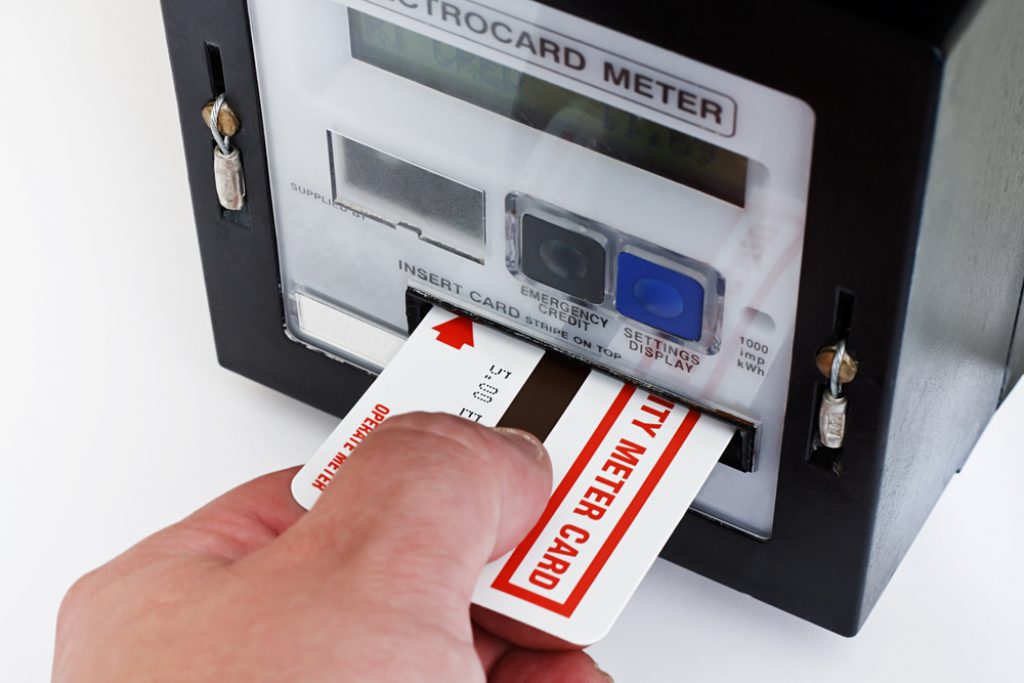The energy regulator Ofgem has expressed concern over the slow progress of the smart meter rollout for prepayment, and the 900,000 radio teleswitch customers.
In an open letter to energy firms, Ofgem revealed that approximately 60% of premises in Great Britain have a smart meter.
But the regulator is concerned that the progress of the rollout to traditional prepayment and radio teleswitch users is much slower compared to standard credit customers “resulting in a lower overall coverage ratio of smart meters for both these groups”.
The letter read: “We are concerned about the slower progress in these areas as it represents a substantial risk to vulnerable consumers with these meter types”.
Prepayment meter customers
Traditional prepayment meters require customers to pay for energy in advance, particularly useful when managing budgets or paying off arrears. They usually require a key or a card to be physically “topped up” at a shop to add credit to the meter.
However, smart prepayment meters give users more options to top up, including online or via a mobile app. And some also give suppliers a heads-up when it comes to customers self-disconnecting so they can take steps to support users. Further, customers can also be switched over to a credit tariff without a change in meter equipment.
However, Ofgem said there is a “large variance” between the larger suppliers’ smart prepayment meter customer portfolios, “which causes us concern”.
Indeed, in 2022 most large suppliers failed to meet their own forecasted prepayment installations, with Ofgem admitting it “expects a similar outcome for 2023”.
Melissa Giordano, deputy director retail systems and processes at Ofgem, wrote: “We consider consumers from a lower socioeconomic background or in vulnerable situations, who remain on traditional prepayment meters are being left at a disadvantage, as they are unable to take advantage of the benefits smart meters bring.
“We are concerned that prepayment consumers, particularly those in vulnerable situations, have not received the benefits of smart meters at the same rate as credit customers, and we expect to see a greater focus from suppliers in delivering smart meters to these customers.”
Radio teleswitch meter
The RTS meter is a legacy industry-run electricity meter that operates via long-wave radio technology. It supports multi-rate and other complex meter types which have functions including switching between peak and off-peak rates or turning on heating or hot water.
Meters are switched between rates via a signal transmitted from radio masts, with many located in central and northern Scotland, as well as some areas of England and Wales.
There are approximately 900,000 homes in Great Britain that are reliant on RTS meters, but the technology supporting them is due to close down on 31 March 2024. However, it is expected that this will pushed back to mid-2025, where Ofgem “expects all RTS meters to be replaced at least three-four months in advance of the prospective close down date”.
Ofgem said that for now, many of these meters are still yet to be replaced, again revealing big discrepancies between providers, with some replacing over 75% of their RTS portfolio, while others have replaced less than 10%.
It highlighted the advantages of smart meters for this portfolio, providing RTS customers with a “long-term solution as the functionality of switching between rates will be controlled via the smart meter and will not be reliant on the current legacy service”.
“It will also enable consumers with these types of meters access to smart specific products and tariffs,” Ofgem added.
The open letter stated: “The roll-out of smart meters for RTS consumers has progressed at a considerably slower pace than expected. In our recent Request for Information (RFI) in relation to RTS replacement progress, suppliers attributed this to factors including complex metering arrangements, issues with identifying RTS consumers (due to Customer Relationship Management issues) and general consumer apathy around replacing and upgrading their current metering arrangements.
“We are concerned about the lack of progress in this area. We consider that consumers who remain on traditional RTS meters are not only being left at a disadvantage, as they are unable to take advantage of the benefits smart meters bring, but more importantly may be exposed to risks should their meter not be replaced prior to the closing of the legacy service.”
Next steps in the smart meter rollout
As part of the next steps, Ofgem said it will be monitoring supplier performance and said it expects improvement in the delivery of smart meters in both these categories.
Giordano wrote: “Should we have concerns with a supplier’s approach to delivery in these areas going forward, we will consider whether further action is appropriate.
We will be writing to suppliers directly on these issues in the near future.”





